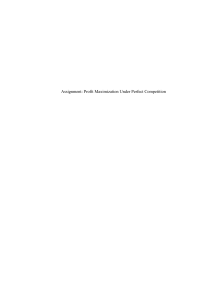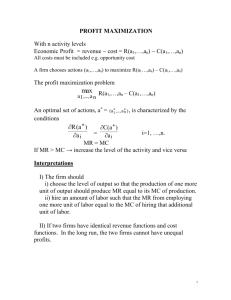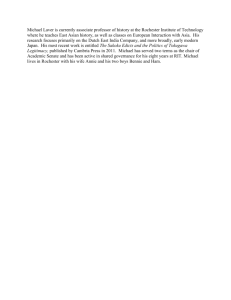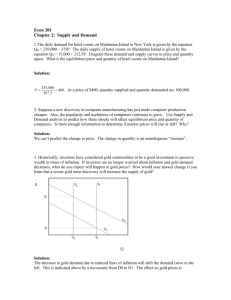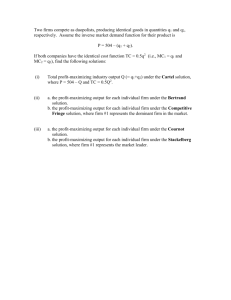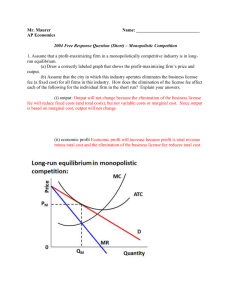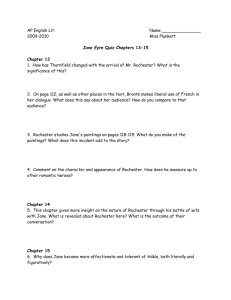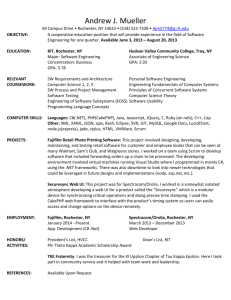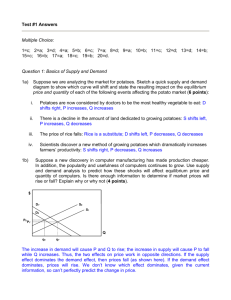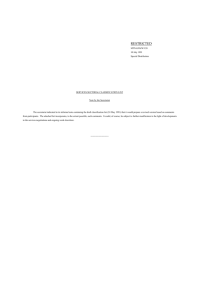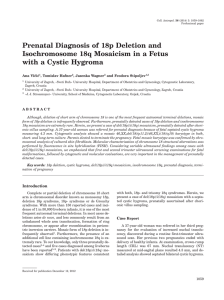Profit Maximization Problems & Solutions
advertisement
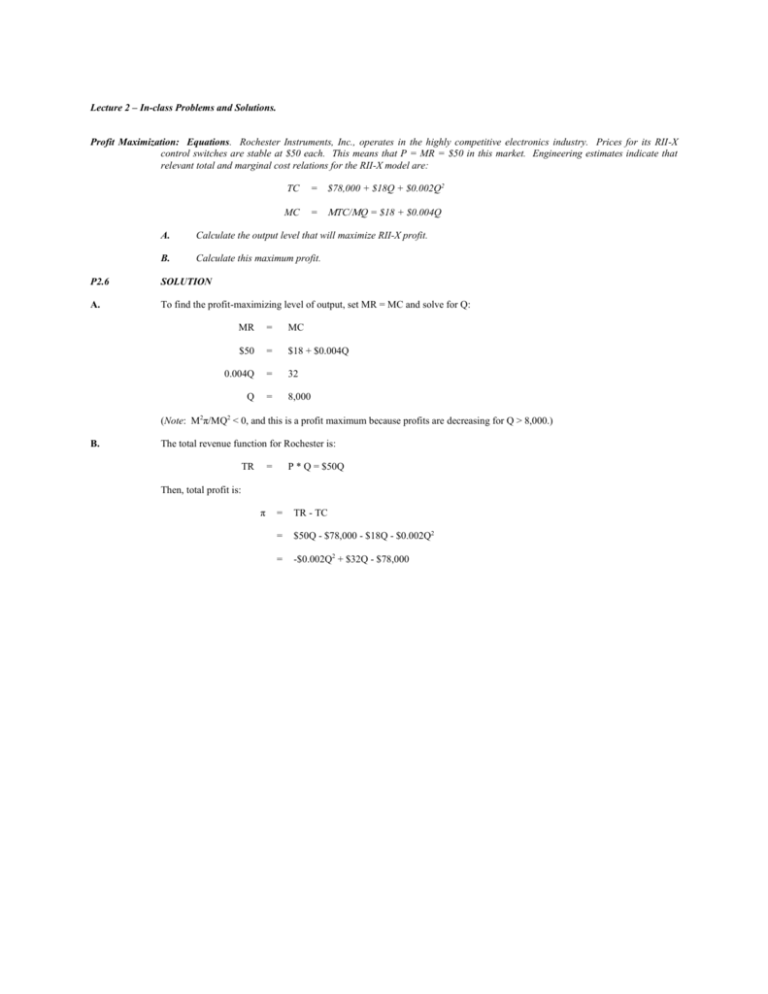
Lecture 2 – In-class Problems and Solutions. Profit Maximization: Equations. Rochester Instruments, Inc., operates in the highly competitive electronics industry. Prices for its RII-X control switches are stable at $50 each. This means that P = MR = $50 in this market. Engineering estimates indicate that relevant total and marginal cost relations for the RII-X model are: TC = $78,000 + $18Q + $0.002Q2 MC = TC/Q = $18 + $0.004Q A. Calculate the output level that will maximize RII-X profit. B. Calculate this maximum profit. P2.6 SOLUTION A. To find the profit-maximizing level of output, set MR = MC and solve for Q: MR = MC $50 = $18 + $0.004Q 0.004Q = 32 Q = 8,000 (Note: 2π/Q2 < 0, and this is a profit maximum because profits are decreasing for Q > 8,000.) B. The total revenue function for Rochester is: TR = P * Q = $50Q Then, total profit is: π = TR - TC = $50Q - $78,000 - $18Q - $0.002Q2 = -$0.002Q2 + $32Q - $78,000 P2.7 = -$0.002(8,0002) + $32(8,000) - $78,000 = $50,000 Profit Maximization: Equations. 21st Century Insurance offers mail-order automobile insurance to preferred-risk drivers in the Los Angeles area. The company is the low-cost provider of insurance in this market but doesn't believe its $750 annual premium can be raised for competitive reasons. Its rates are expected to remain stable during coming periods; hence, P = MR = $750. Total and marginal cost relations for the company are as follows: TC = $2,500,000 + $500Q + $0.005Q2 MC = TC/Q = $500 + $0.01Q A. Calculate the profit-maximizing activity level. B. Calculate the company's optimal profit level, and optimal profit as a percentage of sales revenue (profit margin). P2.7 SOLUTION A. Set MR = MC and solve for Q to find the profit-maximizing activity level: MR = MC $750 = $500 + $0.01Q 0.01Q = $250 Q = 25,000 (Note: 2π/Q2 < 0, and this is a profit maximum because profits are decreasing for Q > 25,000.) B. The total revenue function for 21st Century Insurance is: TR = P * Q = $750Q if MR=P=750 Then, total profit is: π = TR - TC = $750Q - $2,500,000 - $500Q - $0.005Q2 = 750(25,000) - 2,500,000 - 500(25,000) - 0.005(25,0002) = $625,000 TR = $750(25,000) = $18.75 million Profit Margin = π/TR = = $625,000/$18,750,000 0.033 or 3.3%
